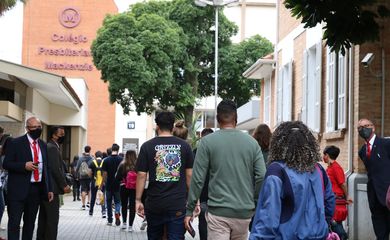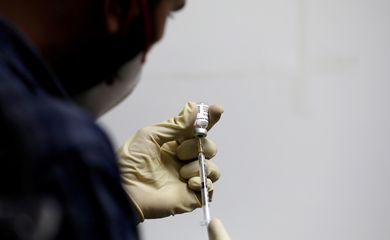Lack of documentation distances part of the African population from vaccination
Invalid Scald ID.

The lack of civil records in Africa could exclude millions of people from vaccination against covid-19 due to lack of access to documentation and health services, according to a study by the Mo Ibrahim Foundation, which promotes the quality of governance in the region.

According to the study "Covid-19 in Africa: a difficult road to recovery", more than 50% of children born on the continent do not have a legal existence due to lack of registration, a service that was impaired or interrupted during the pandemic.
Estimates by the authors of the study show that the number will exceed 100 million unregistered children by 2030, if there is no investment in the sector.
Currently, birth registration is free in only four of the 24 countries in West and Central Africa, and the costs can discourage its use and undermine the vaccination campaign.
Without civil registration, citizens do not have identification documents, nor access to public health services, which can make access to immunization impossible.
The work cites the World Health Organization, which estimates that the number of cases of infection and deaths associated with covid-19 on the continent are far above what is officially reported.
Insufficient civil records impact measures to control the pandemic or assess outcomes, warn the authors.
“As long as there is no relevant and robust data, it is very difficult to define public policy and assess whether it is in the right direction. of civil registration", said the executive director of the Mo Ibrahim Foundation, Nathalie Delapalme.
Cape Verde is the African country with the best performance in this area, with Mozambique, São Tomé and Príncipe, Guinea-Bissau, Angola and Equatorial Guinea having registered improvements since 2010.
Among the challenges identified on the continent are more accessible health care, greater preparedness for future pandemics, investment in education and social support systems, combating gender discrimination, promoting press freedom and internet access, expanding electricity grids and transport infrastructure.
"The impact of covid-19 has brought to light a spectrum of complex governance challenges facing African nations," said the foundation's president, Sudanese businessman and philanthropist Mo Ibrahim, who hopes the study will help policymakers, the private sector and civil society to "put Africa back on the path to recovery".
Text translated using artificial intelligence.





